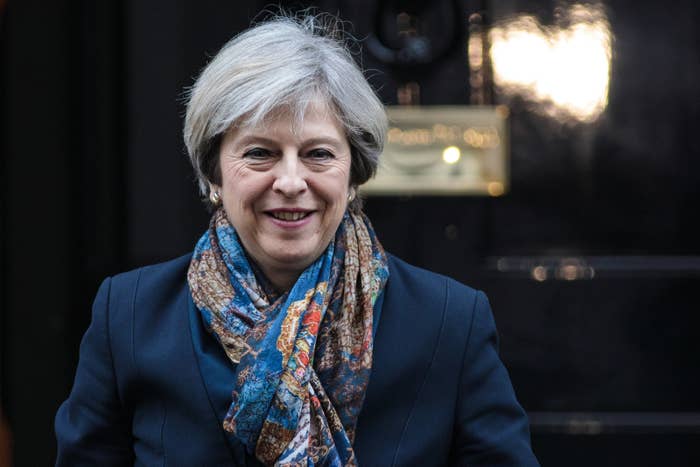
The Supreme Court has ruled that the government does not have the power to formally start the Brexit process without the approval of parliament.
Theresa May will now have to seek permission from MPs to proceed with Brexit, with the government now expected to table legislation in parliament. However, Downing Street said it was confident the ruling would not delay the timetable.
The 11 judges concluded by a margin of 8 to 3 that an act of parliament is required to authorise the end of Britain's membership of the EU and ministers cannot unilaterally declare it, despite the result of last summer's EU referendum.
The prime minister has said she wants to declare Article 50 by the end of March, meaning she has only two months to secure legislative approval from both houses of parliament.
However, it is likely that this will ultimately be secured as Labour leader Jeremy Corbyn has said his party will respect the referendum result and will not seek to block the process.
The Supreme Court concluded that while the Leave campaign won the referendum 52% to 48%, this was not enough to provide a legal basis for Brexit.
"The referendum of 2016 did not change the law in a way which would allow ministers to withdraw the United Kingdom from the European Union without legislation," wrote Lord Neuberger.
"But that in no way means that it is devoid of effect. It means that, unless and until acted on by parliament, its force is political rather than legal. It has already shown itself to be of great political significance."
Brexit secretary David Davis later told the House of Commons that the government expected to table a short piece of legislation which would allow ministers to comply with the ruling "within days". However, opposition parties have pledged to frustrate the process, with the SNP pledging 50 amendments to the proposed law.
Multiple pro-EU Conservative MPs including Ann Soubry, Dominic Grieve, Alistair Burt, and Nicky Morgan also called on the government to publish a white paper – a formal government proposal which would be the basis for parliamentary discussion – in what appeared to be a co-ordinated effort.
One of them – Ben Howlett, the MP for Bath – told BuzzFeed News parliament should be involved all the way through the Brexit process and called. He said this would be “something to ensure that my constitutes and other MPs around the country are able to systematically engage on the next steps of Brexit".
However, he insisted he did not want to block Brexit completely: “The voices of parliament should be integrated into the overall process, which should not stop Article 50 being triggered; I want to see Article 50 declared at soon as possible – because we can’t test of our European neighbours more than we already are."
The court case was brought by investment manager Gina Miller and hairstylist Deir Tozetti Dos Santos, who unexpectedly triumphed at the Royal Courts of Justice in November. Ministers then appealed to the Supreme Court in December – but this appeal has now proved unsuccessful.
However, the government was victorious on one element of the case, as judges ruled the UK government does not have to consult with devolved governments in Wales, Scotland, or Northern Ireland before declaring Article 50.
Pro-EU MPs will now have to decide whether to vote against any proposed legislation or attempt to influence the Brexit process in other ways. The Lib Dems have said they will vote against the bill unless it contains a provision for a second referendum.
But David Davis is insistent there will be no delays and warned anti-Brexit politicians aainst attempting to "thwart the will of the people".
